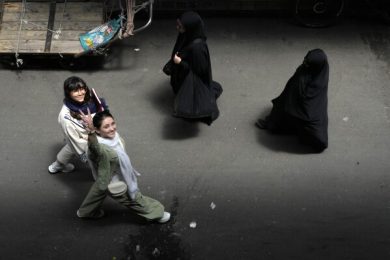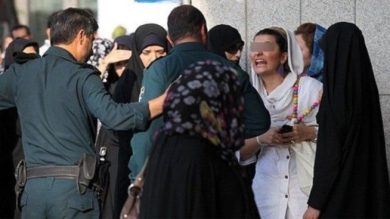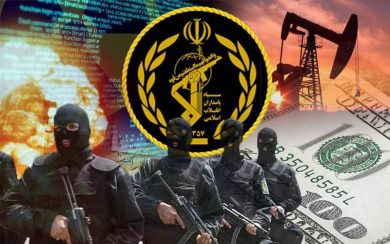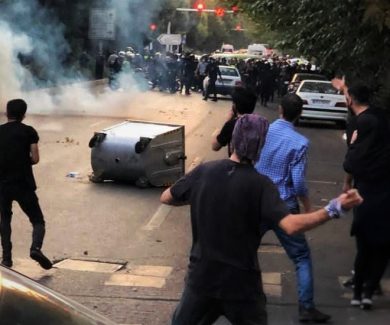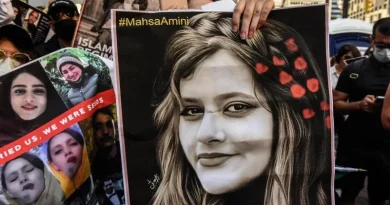The IRGC operates one of the most extensive and complex financial networks of any state-sponsored organization. This funding apparatus ensures a steady flow of money, arms, and resources to its proxies worldwide.
1. Control of Iran’s Economy
The IRGC wields immense control over Iran’s economy, including key sectors like oil, gas, construction, and telecommunications. Through front companies and monopolies, the IRGC generates billions of dollars annually. These revenues are funneled into its Quds Force, the IRGC’s branch responsible for foreign operations.
For example:
- Oil Revenues: Despite international sanctions, the IRGC has engaged in covert oil smuggling operations, using a network of tankers and brokers to sell oil on the black market.
- Construction and Infrastructure: The IRGC’s engineering arm, Khatam al-Anbiya, secures lucrative government contracts, diverting funds to support its military and proxy activities.
2. Illicit Trade and Smuggling
The IRGC is heavily involved in smuggling goods, weapons, and narcotics across borders. These operations generate significant revenue while enabling the supply of arms to its proxies. Examples include:
- Drug Trafficking: Reports have linked the IRGC to the heroin trade, with profits used to fund groups like Hezbollah.
- Arms Smuggling: The IRGC moves weapons through covert routes, supplying rockets, drones, and missiles to proxies in Yemen, Lebanon, and Gaza.
3. International Financial Networks
The IRGC uses a network of front companies, shell corporations, and sympathetic individuals to move money internationally. These financial operations are designed to evade sanctions and obscure the true source and destination of funds. Hezbollah, for example, receives funding through a global network of businesses and banks tied to the IRGC.
4. Exploitation of Charitable Organizations
Under the guise of humanitarian aid, the IRGC channels resources to proxies operating in conflict zones. These organizations act as fronts for smuggling cash and supplies, particularly in regions like Yemen and Syria.
Proxies Supported by the IRGC
The IRGC’s funding network sustains a range of militant groups and terrorist organizations that act as its proxies:
1. Hezbollah (Lebanon)
Hezbollah is perhaps the IRGC’s most successful proxy. Since its founding in the 1980s, Hezbollah has received billions of dollars in funding and advanced weaponry from the IRGC. This support has transformed Hezbollah into a powerful political and military force, capable of waging wars against Israel and exerting control over Lebanese politics.
2. Shiite Militias (Iraq)
The IRGC has cultivated a network of militias in Iraq, such as Kata’ib Hezbollah and Asa’ib Ahl al-Haq. These groups have been used to attack U.S. forces, influence Iraqi politics, and maintain a foothold for Iran in the region.
3. Houthi Rebels (Yemen)
The IRGC provides the Houthis with advanced weaponry, including ballistic missiles and drones, enabling attacks on Saudi Arabia and disrupting vital shipping lanes in the Red Sea.
4. Hamas and Palestinian Islamic Jihad (Gaza)
The IRGC supports Palestinian factions in Gaza, supplying funds and weapons to fuel their campaigns against Israel. This support ensures the continuation of conflict in the region, furthering Iran’s anti-Israel agenda.
The Impact of IRGC Proxy Wars
The IRGC’s proxy wars have had devastating consequences for the countries and regions involved. These include:
- Humanitarian Crises: In countries like Yemen and Syria, IRGC-backed militias have prolonged wars, leading to mass displacement, famine, and loss of life.
- Regional Destabilization: The IRGC’s proxies undermine legitimate governments, fueling political instability and sectarian violence.
- Global Security Threats: Through its proxies, the IRGC has orchestrated terrorist attacks in Europe, Africa, and the Americas, spreading fear and instability far beyond the Middle East.
- Economic Costs: The IRGC’s activities disrupt global markets, particularly in oil and shipping, increasing costs for nations worldwide.
International Efforts to Counter the IRGC
Governments and international organizations have taken steps to counter the IRGC’s funding and proxy operations, but challenges remain:
- Sanctions: The United States and its allies have imposed sanctions targeting the IRGC, its front companies, and financial networks. These measures aim to disrupt the flow of funds to proxies.
- Intelligence Sharing: Enhanced collaboration between nations helps track and dismantle the IRGC’s smuggling routes and financial operations.
- Support for Affected Nations: Providing support to countries like Iraq, Yemen, and Lebanon can help them resist IRGC influence and rebuild stability.
Conclusion
The IRGC’s ability to fund and fuel proxy wars has made it a central player in global terrorism and regional instability. By leveraging economic power, illicit trade, and strategic alliances, it sustains a network of militias and terrorist organizations that perpetuate violence and chaos. Combating the IRGC’s influence requires coordinated international efforts to dismantle its financial networks, support affected nations, and hold it accountable for its actions. Only then can the cycle of proxy wars and terror be broken.
Join Our Newsletter!
Stay informed with the latest updates, news, and ways to take action in the fight for justice and global security. Sign up now to get updates delivered straight to your inbox!

